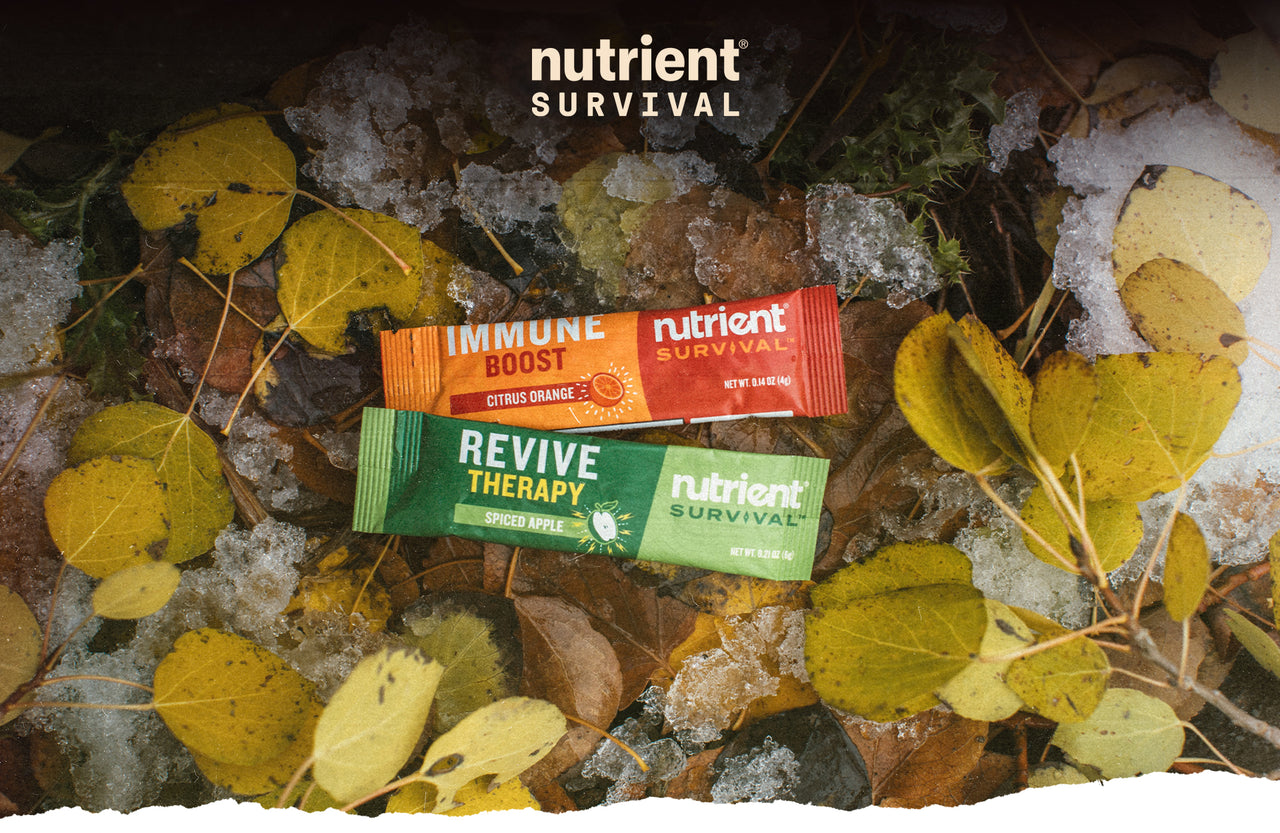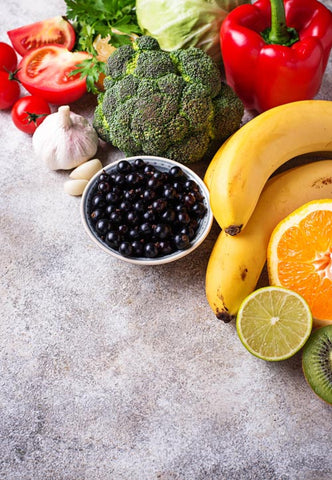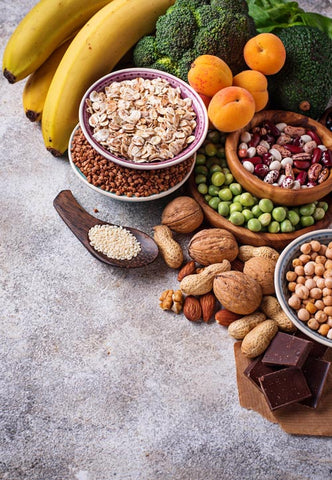The Best Foods That Help Fight Infection

Choose the right foods that boost your immune system and help your body defend against infection.
In a time when health and wellness are top of mind for most, it’s critical to not solely rely on supplements or vaccines to prevent disease. While there are no magic pills for immunity, diet plays a pivotal role in ensuring our body has everything it needs to defend itself. Unfortunately for many, chaotic schedules and increased responsibilities have made it difficult to maintain healthy eating habits. A healthy immune system results from many smart lifestyle habits, including proper exercise and an adequate amount of foods that ward off infection.
Dr. Vijaya Surampudi, an assistant professor of medicine at the UCLA Center for Human Nutrition, sums it up adequately: “An ounce of prevention produces a pound of cure. How you feed your body on a daily basis pays off in a lifetime.”
“An ounce of prevention produces a pound of cure. How you feed your body on a daily basis pays off in a lifetime.” - Dr. Vijaya Surampudi
Thankfully, we’ve created a comprehensive list of vitamins and minerals (in no particular order) that help fight infection and the everyday foods in which they can be found. To make things even easier, we’ve included options from Nutrient Survival that pack 40 essential vitamins and minerals in convenient, delicious recipes. In addition to delicious foods, Nutrient Survival offers several nutrient-dense drinks to help fight infection, including Immune Boost, Liquid Nutrient, Powdered Vitamin Milk, Vitamin Coffee, and Revive Therapy.
Important Note: No supplement or vitamin regimen will prevent or cure disease. Currently, no research exists that suggests the use of any supplement will help prevent or alleviate COVID-19.
ZINC

- Crab
- Lean meats and poultry
- Beans and other legumes
- Yogurt
- Chickpeas
NUTRIENT SURVIVAL (PER SERVING)
Creamy Chocolate Shake (40% Avg. Daily Value)Southwestern Medley (3 different varieties of beans)
VITAMIN A
 Vitamin A plays a pivotal role in maintaining a healthy digestive system and helps boost immune response across the entire gut lining. Due to poor diet, the gut can often be the first place that many people develop immune deficiencies. Liver has the most natural Vitamin A, but likely isn’t a regular item on most plates.
Vitamin A plays a pivotal role in maintaining a healthy digestive system and helps boost immune response across the entire gut lining. Due to poor diet, the gut can often be the first place that many people develop immune deficiencies. Liver has the most natural Vitamin A, but likely isn’t a regular item on most plates.
- Fish like Tuna, Salmon, and Mackerel
- Carrots
- Sweet potatoes
- Butternut Squash
- Bell peppers
- Spinach
- Hearty Apple Cinnamon Oatmeal (40% Avg. Daily Value)
- Vitamin Coffee (80% Avg. Daily Value)
VITAMIN C

Vitamin C is perhaps the most commonly known vitamin that has positive effects on the immune system. Many swear by a heavy dose when symptoms of cold or flu begin to set in. Vitamin C helps boost the production of white blood cells and is present in many foods to help fight infection. With so many foods packed with it, rarely are supplements a necessity.
- Leafy greens like spinach and kale
- Bell peppers
- Brussels sprouts
- Strawberries
- Papaya
NUTRIENT SURVIVAL (PER SERVING)
- Homestyle Scramble (30% Avg. Daily Value)
VITAMIN D

Vitamin D has proven to be one of the most critical nutrients when it comes to immune system regulation. We often attribute the main source of Vitamin D to direct sunlight, but during winter months it can be difficult to ensure adequate exposure. It has also been hypothesized that Vitamin D deficiencies can prolong recovery from more serious infections. As a result, this vitamin is one of the few that may require additional supplementation outside of your typical diet. Here are a few options to help supplement and prepare your body to fight infection:
- Salmon
- Mackerel
- Tuna
- Sardines
- Milk, orange juice, and cereals fortified with Vitamin D
NUTRIENT SURVIVAL (PER SERVING)
-
Chocolate Chip Cookie-Meals (25% Avg. Daily Value)
VITAMIN E

Vitamin E is an important antioxidant that prevents cell damage and promotes normal function of immune cells. The vitamin works as a first line of defense against lipid peroxidation, making it an important block to the development of cancer cells. Although Vitamin E deficiency is rarely an issue amongst most adults, it’s still best practice to ensure you are eating foods that help regulate your immune system and fight off infections. High-fat plant foods often carry sufficient amounts in a small serving:
- Almonds
- Peanut butter
- Sunflower seeds and oils
- Soybean oil
- Hazelnuts
NUTRIENT SURVIVAL (PER SERVING)
- Peanut Butter Bar-Meals (30% Avg. Daily Value)
SELENIUM

You may not be as familiar with selenium, but this nutrient helps lower oxidative stress that reduces inflammation and prevents infection. Antioxidants like this also help fight off cancer cells and chronic conditions like heart disease. Most animal proteins contain enough selenium to meet your daily needs, and one Brazil nut offers 100% of your average daily value. It is possible to have too much selenium, so be careful not to overdo it.
- Meat and liver
- Seafood
- Poultry
- Cottage cheese
- Honey Granola Bar-Meals (35% Avg. Daily Value)
IRON

Our cells have an essential need for iron, as it is required for several biological processes. Iron deficiency is one of the most common health issues associated with decreased immune function. Too little iron in the diet can cause anemia, the process in which your body cannot produce enough hemoglobin in red blood cells to properly carry oxygen. Our body most easily absorbs iron from animal proteins:
- Red meat (in limited amounts and less frequent)
- Chicken
- Turkey
- Sardines
- Oysters, mussels, and clams
- Canned tuna
NUTRIENT SURVIVAL (PER SERVING)
-
Chocolate Grain Crunch (25% Avg. Daily Value)
FOLATE

You are likely more familiar with the synthetic form of folate, folic acid. Folate occurs naturally in several foods including vegetables, beans, peas, and fruits. Folate plays a key role in the creation of DNA and RNA, the genetic material that tells our cells how to function. Studies have shown that severe deficiencies in folate can hinder immunity and make you susceptible to infection. Other studies have also suggested that too much folate or folic acid can have the same effect, so it’s important to maintain a recommended amount. Below are the best natural foods that contain folate and help fight infection:
- Leafy greens like spinach and kale
- Avocado
- Beans and lentils
NUTRIENT SURVIVAL (PER SERVING)
- Southwestern Medley (60% Avg. Daily Value)
- Chocolate Grain Crunch (70% Avg. Daily Value)
- Triple Cheese Mac (60% Avg. Daily Value)
MAGNESIUM

We utilize magnesium for many functions as it is involved in over 300 chemical reactions in the body. Magnesium is often marketed as a cure for many common ailments, but studies have not proven this and it’s important to maintain a healthy level. It is typically suggested that getting your magnesium from food is the best method of regulating proper levels. Most of the time we can get an adequate amount of magnesium from a healthy diet, but some people with chronic diseases may require additional supplementation.
- Leafy greens like spinach and kale
- Avocado
- Dark chocolate
- Brown rice
- Pumpkin seeds
NUTRIENT SURVIVAL (PER SERVING)
- Maple Almond Crunch (25% Avg. Daily Value)
- Creamy Chocolate Shake (45% Avg. Daily Value)
- Immune Therapy (50% Avg. Daily Value)
On top of the health benefits, Nutrient Survival recipes are delicious and incredibly easy to make. Whether you are out backpacking in the wilderness, camped in a hunting blind, or prepping for the next natural disaster, Nutrient Survival will be with you every step of the way.
Tags
nutritionCheck out our latest articles
Zero risk. Only gains.
100% Risk Free
Your complete satisfaction guaranteed or your money back.
Made by Real People
Made and packaged in our facility right here in the USA. Any issues, just give us a call.
Free Shipping
Free shipping on orders $99.99+. Always out the door in a day or two straight to your home.
For more information, please visit our Terms of Service. Learn More
Zero risk. Only gains.
100% Risk Free
Your complete satisfaction guaranteed or your money back.
Made by Real People
Made and packaged in our facility right here in the USA. Any issues, just give us a call.
Free Shipping
Free shipping on orders $99.99+. Always out the door in a day or two straight to your home.
For more information, please visit our Terms of Service. Learn More










